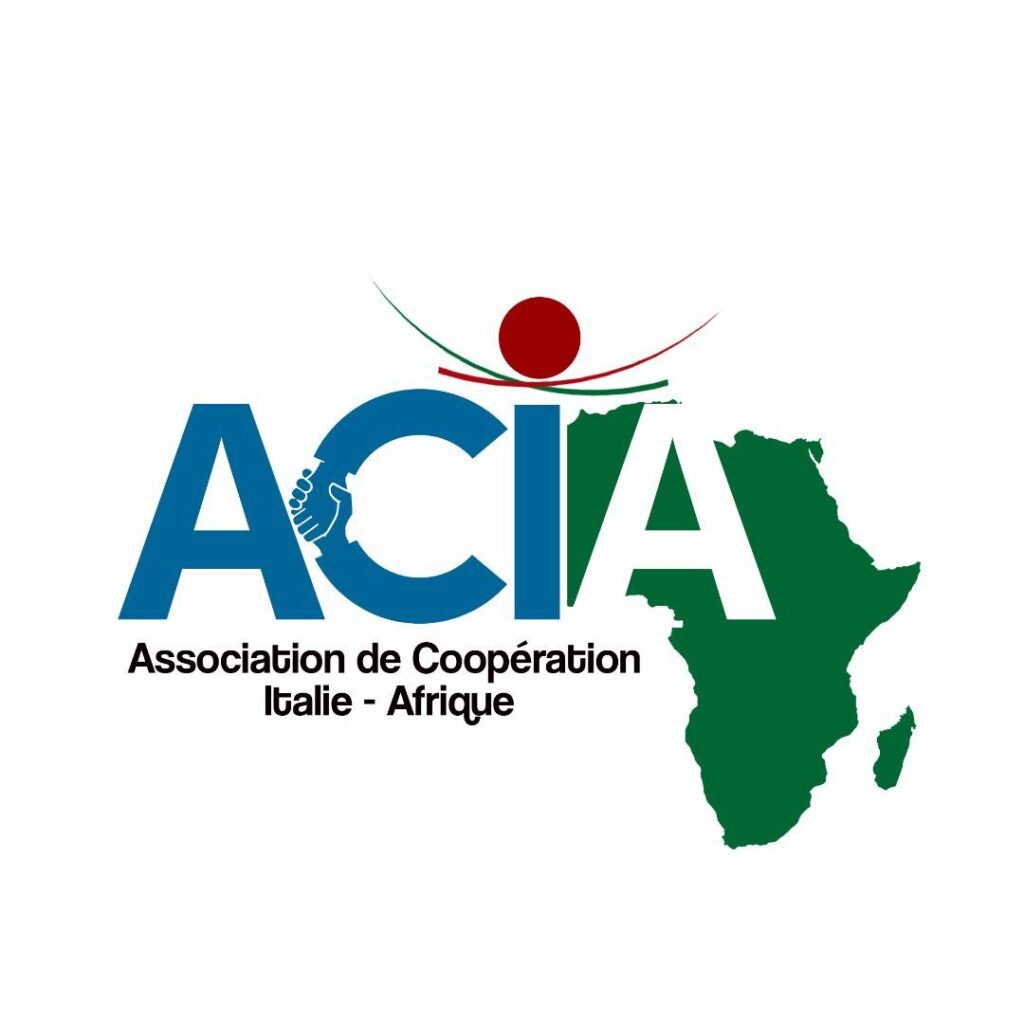Mattei Plan for Africa's development under the Meloni government of 2024
The Mattei Plan was a historic initiative that profoundly marked Italy's foreign policy towards Africa. Under the Meloni government of 2024, a new chapter in relations between Italy and the African continent is set to begin, with a focus on promoting sustainable development and economic cooperation.
The roots of the Mattei Plan and its impact on Africa
The Mattei Plan, conceived by industrialist Enrico Mattei in the 1950s, aimed to guarantee Italy a stable supply of oil from Africa, while at the same time promoting the economic and social development of African countries. This far-sighted vision has helped establish lasting ties between Italy and Africa, paving the way for partnerships and cooperation initiatives that have had a significant impact on the continent's growth and development.
The role of the Meloni government in relaunching the Mattei Plan for Africa
Under the 2024 Meloni government, the Mattei Plan for Africa aims to relaunch and renew Italy's commitment to the African continent. In line with Meloni's vision, the plan aims to promote cooperation based on values of reciprocity, sustainability and shared development.
This means not only strengthening economic relations, but also supporting projects aimed at improving education, health, infrastructure and technological innovation in Africa.The Meloni government also intends to encourage Italian investments in key sectors of the African economy, such as energy, sustainable agriculture, manufacturing and infrastructure. This approach aims to foster economic growth and create employment opportunities in both Italy and Africa, thus contributing to greater shared prosperity.
Objectives and key initiatives of the Mattei Plan under the Meloni government
The Mattei plan for Africa under the Meloni government is structured around several key objectives and initiatives:
1. **Promotion of sustainability**: The Meloni government is committed to supporting projects and initiatives aimed at promoting environmental and social sustainability in Africa. This includes the promotion of renewable energy, environmental protection, sustainable management of natural resources and the adoption of eco-friendly agricultural practices.
2. **Cooperation in the energy sector**: Italy, under the Meloni government, intends to strengthen cooperation in the energy sector with African countries, promoting the diversification of energy sources and supporting the development of infrastructure for the production and distribution of clean energy.
3. **Agriculture development and food security**: The Mattei Plan envisages initiatives to strengthen African agriculture, improve cultivation techniques, promote food security and facilitate market access for local producers.
4. **Innovation and technological development**: The Meloni government aims to support innovation and technological development projects in Africa, promoting access to digital technologies, vocational training and the use of new technologies to improve services and infrastructure.
5. **Collaboration in the health sector**: Italy is committed to strengthening collaboration in the health sector, supporting disease prevention programmes, improving access to medical care and promoting the exchange of knowledge and skills in the field of public health. In addition, the Mattei Plan envisages the promotion of cultural initiatives, academic exchange and the enhancement of African historical and artistic heritage, in order to foster greater mutual understanding and strengthen ties between Italian and African communities.
Conclusions
The relaunch of the Mattei Plan for Africa under the Meloni government in 2024 represents a unique opportunity to strengthen relations between Italy and the African continent, promoting sustainable development, economic cooperation and shared prosperity. Through concrete commitment and a far-sighted vision, Italy stands as a reliable and constructive partner to contribute to Africa's progress and wellbeing, while consolidating its role in the international context.
Investment and strategic partnerships for Africa's development
Under the Meloni government, the Mattei Plan for Africa aims to create a framework of investments and strategic partnerships that can stimulate economic growth and sustainable development on the continent. This approach is based on the conviction that mutually beneficial cooperation between Italy and African countries can bring benefits to both sides.One of the key elements of this strategy is the attraction of Italian investments in Africa. The Meloni government is committed to offering incentives and guarantees to encourage Italian companies to expand their activities on the African continent.
This includes tax breaks, export support programmes and assistance in accessing local markets. Through these investments, Italy aims to create new employment opportunities, transfer know-how and technology, and promote the development of sustainable production chains. At the same time, the Mattei Plan promotes strategic partnerships between Italian and African companies, encouraging the creation of joint ventures, collaboration agreements and supply networks. These partnerships will not only facilitate access to markets, but also allow best practices, knowledge and skills to be shared between the different actors, contributing to the strengthening of the production and managerial capacities of African companies.
Infrastructure modernisation and connectivity
Another key pillar of the Mattei Plan for Africa under the Meloni government is the modernisation of infrastructure and the improvement of connectivity within the continent. Aware of the crucial role of infrastructure for economic development, the Italian government is committed to supporting projects to modernise and upgrade transport, communication and energy supply networks.
In particular, Italy intends to collaborate with African countries on strategic infrastructure projects, such as the construction of roads, railways, ports and airports. These investments will aim to improve the mobility of people and goods, facilitating the integration of markets and access to essential services. In addition, the Mattei Plan envisages support for the development of high-speed telecommunications networks to promote access to digital technologies and foster connectivity across the continent.
At the same time, the Meloni government is committed to supporting initiatives to ensure the sustainability and resilience of these infrastructures, e.g. through the adoption of low-impact solutions, such as renewable energy, and the implementation of climate change adaptation measures.
Education, training and human capital development
Under the Mattei Plan for Africa, the Meloni government recognises the crucial importance of human capital development as an engine for long-term growth and development. Therefore, the plan envisages significant investments in education and vocational training to enhance the skills and capacities of the African population.One of the key objectives is to improve access to education, especially for the most vulnerable segments of society, such as women and rural communities.
This will involve supporting the construction and modernisation of educational institutions, increasing the number of scholarships, and implementing literacy and basic education programmes.Furthermore, the Mattei Plan will focus on vocational training, promoting the acquisition of technical and managerial skills through partnerships between Italian and African training institutions.
This approach aims to create a skilled workforce capable of supporting the development of new economic sectors and fostering innovation.
The Meloni government also intends to encourage academic exchanges and collaboration between Italian and African universities and research centres. This will facilitate the transfer of knowledge and good practices as well as promote research and innovation in areas of common interest, such as sustainable agriculture, renewable energy and natural resource management.
Promoting gender equality and women's empowerment
A key aspect of the Mattei Plan for Africa under the Meloni government is the commitment to promote gender equality and women's empowerment. Recognising the essential role of women in the continent's social and economic development, the plan includes initiatives aimed at supporting equality of opportunity and empowering women in all sectors.Among the main actions planned are:
1. **Access to education and training**: The Mattei Plan is committed to ensuring equal access to education and vocational training for girls and women in order to close the gender gap in education.
2. **Economic Empowerment**: Programmes to support female entrepreneurship will be launched, facilitating access to credit, management training and business networks for African women.
3. **Participation in leadership and decision-making processes**: The Meloni government encourages the active participation of women in decision-making and governance processes, promoting their representation in leadership roles at political, social and economic levels.
4. **Rights protection and combating gender-based violence**: The Mattei Plan provides support for initiatives to raise awareness, strengthen institutions and assist victims to combat gender-based violence and promote respect for women's rights.
5. **Work-life balance**: Measures will be taken to facilitate work-life balance for African women by improving care services and supporting gender equality policies.
Through these actions, the Mattei Plan aims to create a more equitable and inclusive environment in which women can have equal opportunities to participate in and contribute to Africa's socio-economic development.
Strengthening governance and the rule of law
The Mattei Plan for Africa under the Meloni government recognises the importance of promoting effective governance and the rule of law as fundamental prerequisites for the continent's sustainable and inclusive development. Therefore, the plan includes initiatives to strengthen institutions, fight corruption, and support respect for human rights and fundamental freedoms. In particular, the Italian government is committed to providing technical assistance and training to improve the administrative and management capacities of African public institutions.
This will include support for the development of public financial management systems, transparent procurement procedures and control and accountability mechanisms.In addition, the Mattei Plan includes support for initiatives to strengthen the rule of law by improving access to justice, strengthening judicial systems and combating organised crime and corruption.
These actions will aim to create a more stable and investment-friendly environment, stimulating the confidence of economic operators and civil society. The Meloni government also intends to promote the involvement and participation of civil society in decision-making processes in order to foster the accountability and transparency of institutions. Capacity building initiatives for non-governmental organisations and social movements will be supported to strengthen their monitoring and advocacy role.
Through this comprehensive approach, the Mattei Plan aims to contribute to the creation of stronger and more democratic institutions in Africa, thus ensuring the necessary conditions for long-term equitable and inclusive development.
Multilateral Cooperation and International Partnerships
The Mattei Plan for Africa under the Meloni government recognises the importance of multilateral cooperation and the establishment of international partnerships to address common challenges and promote the continent's sustainable development. In this perspective, Italy is committed to strengthening its role in international bodies and institutions, such as the United Nations, the African Union and multilateral development banks.
Through this active participation, the Meloni government intends to contribute to the definition of development cooperation policies and programmes that are aligned with the needs and priorities of African countries.In addition, the Mattei Plan envisages the intensification of collaboration with other international partners, such as the European Union, the United States and major emerging countries.
These strategic partnerships will make it possible to mobilise additional financial, technological and know-how resources, fostering a coordinated and synergetic approach to development interventions in Africa.The Meloni government is also committed to promoting South-South cooperation, facilitating the exchange of good practices and experiences between African and other developing countries. This will strengthen local capacities and stimulate tailor-made solutions to the continent's specific challenges.
Finally, the Mattei Plan provides for the involvement of non-state actors, such as the private sector, civil society organisations and local communities, in the definition and implementation of cooperation initiatives. This multi-actor approach will help to ensure that development activities are aligned with the needs and aspirations of African populations.Through this strategy of multilateral cooperation and international partnerships, the Mattei Plan aims to multiply the impact of Italian efforts, optimising the use of resources and promoting synergies at the global level to achieve sustainable development goals in Africa.
Business Consultant | New Global Business and Internationalisation Expert
Specialised in accompanying companies to global markets, I combine academic and operational skills to develop effective and sustainable internationalisation strategies. With a focus on innovative business models, transnational contracting and corporate social responsibility, I help companies navigate the complexities of emerging markets and informal economies.
Academic Profile
Master's Degree in Economics and International Finance with experience in Swiss and global contexts, is adjunct professor at the Catholic University of the Sacred Heart (Brescia) from 2021. He teaches:
-
International Contractslegal frameworks for operating in complex markets.
-
Informal economy in developing countriesCritical analysis of socio-economic dynamics and market opportunities.
-
Management of local and global enterprisesOperating models for 'Born Global' companies and integration of digital technologies.
Practical approach
I work with SMEs and multinationals for:
✔ Reducing cultural and logistical barriers through digital tools (OMS, ERP, 3D platforms).
✔ Implementing multiplication strategies for expansion into priority markets, with case studies in the US, UAE and Asia.
✔ Integrating social responsibility in business plans, with a focus on ethical supply chains.
Objective of the blog
Sharing insights on new global business models, practical cases of internationalisation and technological trends that are revolutionising cross-border trade.
'Success in the global economy requires not only technical expertise, but a systemic vision that combines digital innovation, cultural adaptation and sustainability'.
For collaboration or consultancy: Link






